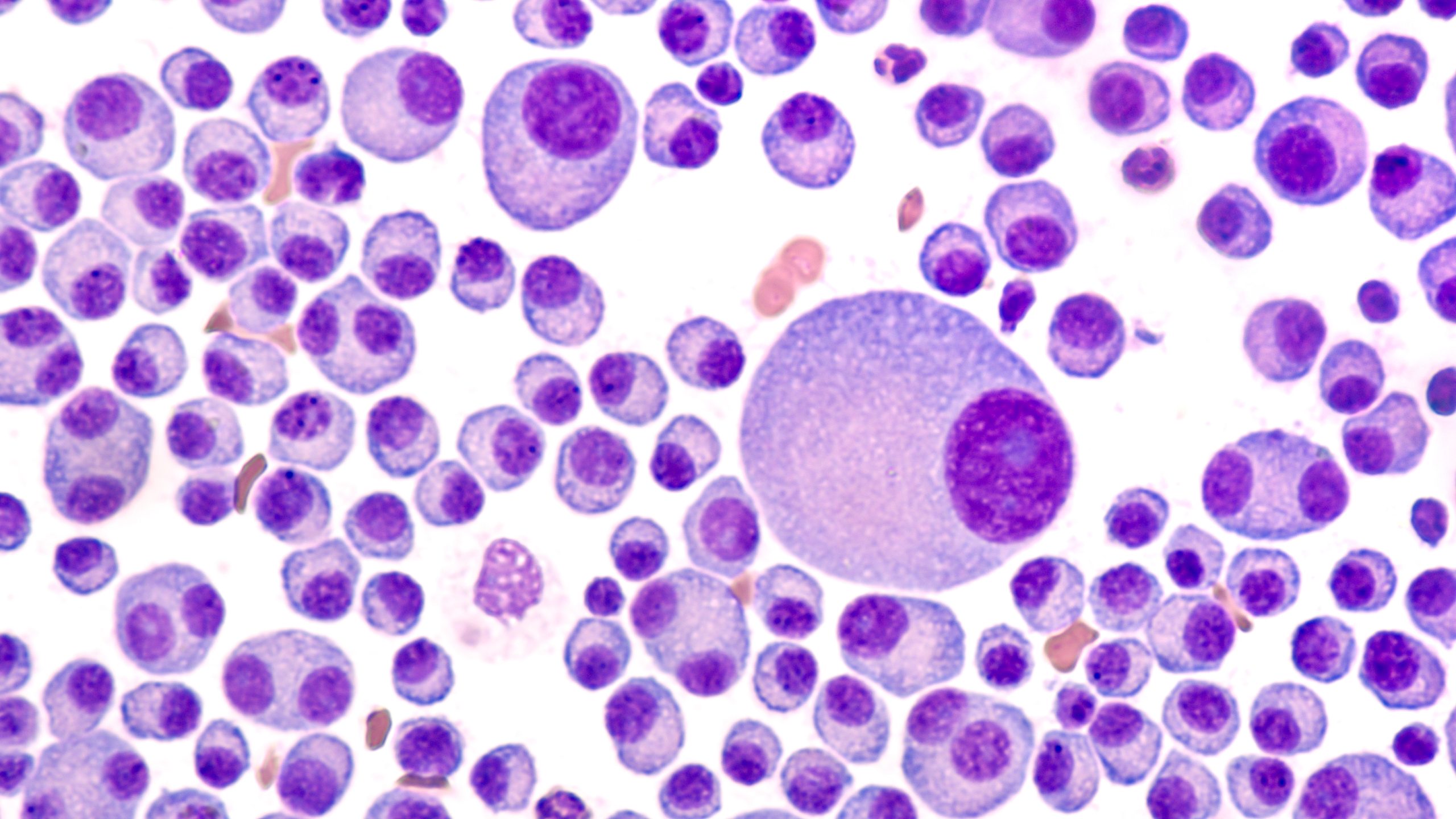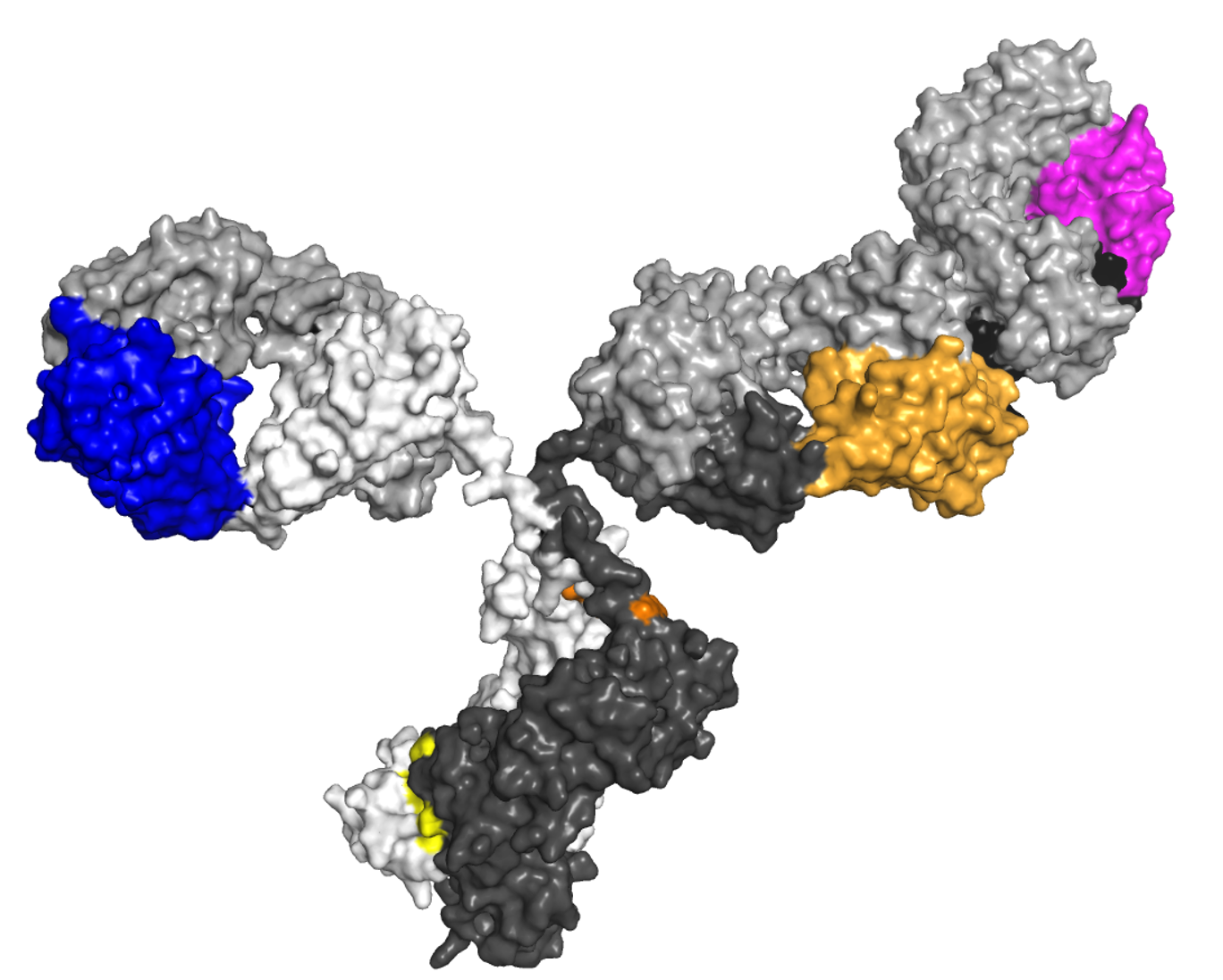
Early discontinuation of daratumumab plus lenalidomide and dexamethasone in patients with transplant-ineligible newly diagnosed multiple myeloma “may compromise long-term patient outcomes,” according to a post-hoc analysis of the phase III MAIA study.
Philippe Moreau, MD, of the University Hospital of Nantes, France, and colleagues conducted the analysis to “determine the impact of treatment duration on long-term clinical outcomes.” Dr. Moreau and colleagues presented the research at the 19th Annual International Myeloma Society Meeting.
They conducted the study because patients with transplant-ineligible newly diagnosed multiple myeloma who received daratumumab plus lenalidomide and dexamethasone until progression in the MAIA study had improved progression-free survival (PFS) and overall survival (OS) compared with patients who received lenalidomide and dexamethasone.
“Given the cost of long-term disease control with [daratumumab plus lenalidomide and dexamethasone], physicians may look to limit treatment while maintaining clinical benefit,” Dr. Moreau and colleagues wrote. “However, randomized practice-informing data are lacking.”
They conducted a post-hoc analysis of OS to compare patients who received daratumumab plus lenalidomide and dexamethasone for less than 18 months with those who received it for 18 months or more. Patients who discontinued therapy due to disease progression during the first 18 months were not included in the analysis.
The researchers also conducted analyses on patients receiving the triplet treatment who discontinued daratumumab alone, or lenalidomide and/or dexamethasone but continued the remaining treatment. Dr. Moreau and colleagues did this to “evaluate the impact of discontinuing individual [daratumumab plus lenalidomide and dexamethasone] regimen components,” they wrote.
Additionally, they conducted an analysis of PFS and OS in patients who received the triplet treatment or lenalidomide and dexamethasone for at least nine months or at least 18 months. The median follow-up was 56.2 months.
Patients who received the triplet treatment for 18 months or more had a significant OS benefit compared with those who received it for less than 18 months (hazard ratio [HR], 0.16; 95% CI, 0.1-0.25; P<.0001).
In patients who received the triplet treatment but discontinued lenalidomide plus or minus dexamethasone at any time and continued to receive daratumumab plus or minus dexamethasone, the 60-month PFS rate was 97.9%, while the 60-month OS rate was 100% (n=48). The patients in the intent-to-treat population (n=368) had a 60-month PFS rate of 52.5% and a 60-month OS rate of 66.3%.
The triplet treatment led to significant PFS benefits over lenalidomide and dexamethasone in patients who received treatment for at least 18 months (HR, 0.57; 95% CI, 0.43-0.76; P<.0001). The triplet also led to significant OS benefits compared with the doublet treatment (HR, 0.68; 95% CI, 0.47-0.98; P=.0379).
In patients who received treatment for at least nine months, the triplet treatment also led to significant PFS benefits (HR, 0.49; 95% CI, 0.38-0.62; P<.0001) and OS benefits (HR, 0.63; 95% CI, 0.47-0.85; P=.0025) over the doublet treatment.
Of the patients who received the triplet treatment for at least 18 months, responses “deepened over time,” according to Dr. Moreau and colleagues. Rates of complete response or better increased from 9.2% at six months into treatment, to 19.1% at nine months, and 49.8% at 18 months.
In patients receiving treatment for at least 18 months, the triplet treatment significantly prolonged PFS and OS over the doublet treatment in patients whose best response at six months of treatment was a very good partial response and deepened to a complete response or better by nine months or 18 months.
“No new safety concerns were identified, and grade 3/4 hematologic treatment-emergent adverse events with [daratumumab plus lenalidomide and dexamethasone] generally decreased over time,” the researchers wrote.
The study showed the triplet treatment “improved clinical outcomes” versus the doublet treatment in patients who received at least 18 months of treatment at a median follow up of at least 4.5 years, according to the study’s investigators.
“For [patients treated with daratumumab plus lenalidomide and dexamethasone], discontinuation of [lenalidomide plus or minus dexamethasone] did not appear to compromise efficacy,” Dr. Moreau and colleagues concluded. “Our findings support [daratumumab plus lenalidomide and dexamethasone] treatment for at least 18 months to achieve deep clinical responses and that stopping [daratumumab plus lenalidomide and dexamethasone] earlier based on response level may compromise long-term patient outcomes.”
Reference
Moreau P, Facon T, Usmani S, et al. Treatment duration and long-term outcomes with daratumumab in transplant-ineligible newly diagnosed multiple myeloma from the phase 3 MAIA study. Oral Abstract #039. Presented at the 19th Annual International Myeloma Society Meeting. August 25-27, 2022.






 © 2025 Mashup Media, LLC, a Formedics Property. All Rights Reserved.
© 2025 Mashup Media, LLC, a Formedics Property. All Rights Reserved.